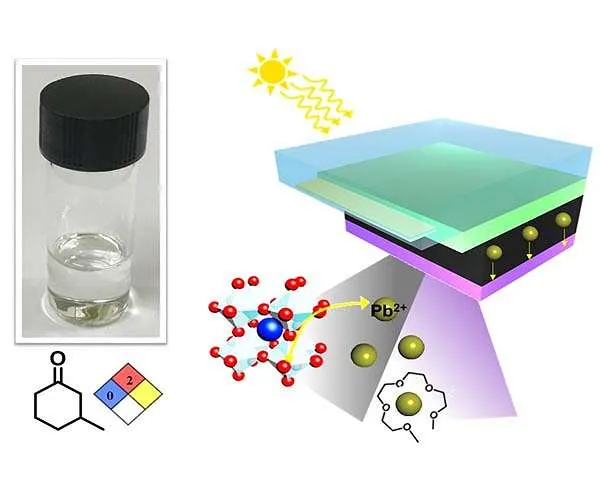Perovskite solar cells constructed from pepper mint oil and also walnut scent artificial additive, stopping lead leak
- POSTECH study group included Prof. Taiho Park as well as Junwoo Lee, a pupil in joint MS-PhD program created Alkoxy-PTEG, opening transportation polymers that could be liquified in pepper mint oil, by using ethylene glycol side chains when they generated high effectiveness perovskite solar cells. Additionally, they verified that this polymer caught dripping lead in the aged perovskite solar cells.

Solar power that gets to the Earth has to do with 125 million gigawatt (Gw). When this solar power produced for a year is exchanged oil, it is 100 trillion load which is 10 thousand times greater than the quantity of oil power the globe utilizes in a year. So, it is no unusual when among the coffee business advertisements claimed, "The sunshine getting to the Earth for 30 secs suffices for the whole globe to make use of power for 48 hrs." Transforming this solar power right into electric power is solar battery power. Lately a research study group from POSTECH created an environment-friendly natural digital product innovation to resolve an ecological problem which can take place throughout the manufacturing procedure of the standard perovskite solar cells.
POSTECH study group included Prof. Taiho Park as well as Junwoo Lee, a pupil in joint MS-PhD program created Alkoxy-PTEG, opening transportation polymers that could be liquified in pepper mint oil, by using ethylene glycol side chains when they generated high effectiveness perovskite solar cells. Additionally, they verified that this polymer caught dripping lead in the aged perovskite solar cells.
The crucial product of a solar battery is photoactive layer which soaks up solar power. Perovskite makes use of products with crystal frameworks as photoactive layers as well as its distinguishing characteristic is soaking up lights extremely well which is feasible by utilizing low-cost not natural and also natural products. Because of this, it is described as 'next-generation solar battery.' However the issue is that natural products of transportation layer utilized in a solar battery utilizes harmful chemical solvent in the manufacturing procedure as well as can hurt setting and also people as well as consequently can not be standardized. Additionally, when lead in the perovskite comes to be aged, it can leakage.
They developed and also manufactured brand-new polymers to make sure that they can be liquified in pepper mint oil (3-methylcyclohexanone) or walnut fragrant artificial additive (2-methyl anisole), which can change the harmful chemicals utilized formerly. This made an environment-friendly procedure feasible.
The research study group refined the perovskite solar cells making use of pepper mint oil as a solvent with no chemical ingredients and also the solar battery performance got to 19.9% and also 21.2% when walnut scent preservative were utilized. In addition, negative aspect of the standard perovskite solar battery is that it has reduced security since it is weak to wetness and also when there is water its photoelectric conversion performance reduces significantly. The recently established polymers, nevertheless, got over the negative aspect. The research study group validated that they maintained 88% effectiveness after 30 days passed as well as displayed high security.
In the meantime, they carried out magnetic vibration evaluation as well as verified that the ethylene glycol side chains in the aged perovskite solar cells maintained lead with modest stamina. They lastly completed establishing multifunctional hold transportation polymers that could be green solvent refined and also avoid lead leak. Simply put, they maintained dripped lead without damaging frameworks of the perovskite. Their success is anticipated to be a remedy for environmental pollution problems triggered by lead leak, a persistent issue of the perovskite solar cells.
Junwoo Lee that performed this study claimed, "When we utilize eco-friendly solvent in the manufacturing procedure as well as avoid lead produced by the aged perovskite solar cells with a polymer, we can fix ecological problems of the high effectiveness perovskite solar cells as well as standardize them," indicating its feasible commercialization.
Prof. Taiho Park additionally commented, "Our study revealed the globe's highest possible performance of the perovskite solar cells which underwent a green procedure with no poisonous compounds included. We expect that this can be an option to lead leak of the standard perovskite solar cells which hurts bodies or triggers ecological issues."
The study was sustained by the Center for Advanced Soft Electronics under the Global Frontier Project moneyed by the Ministry of Science and also ICT. Their job has actually been released in the on the internet variation of Advanced Energy Materials, one of the most popular journal in the field of power and also has actually acquired much interest.
Also read

